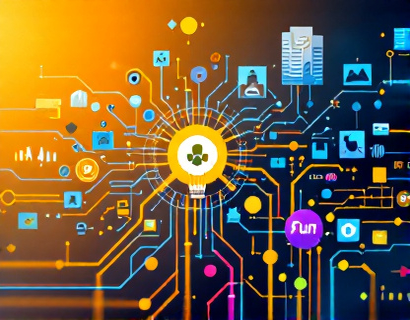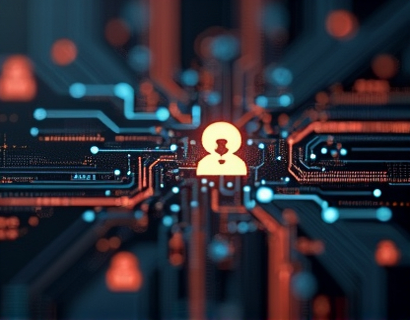Transforming Education with AI-Powered Chatbots: A Comprehensive Guide for Students, Families, and Educators
The integration of artificial intelligence in educational settings has opened new avenues for learning, providing tailored insights and support to students, families, and educators. Among these innovations, AI-powered educational chatbots stand out as a transformative tool, offering specialized knowledge and industry insights in a safe and interactive manner. This article delves into the capabilities and benefits of these chatbots, focusing on how they can enhance the educational experience for all users.
Understanding AI-Powered Educational Chatbots
AI-powered educational chatbots are sophisticated software applications designed to simulate conversation through natural language processing and machine learning algorithms. These chatbots are programmed to understand and respond to user queries with relevant and accurate information, adapting to the user's level of understanding and learning pace. Unlike traditional Q&A systems, these chatbots can engage in multi-turn conversations, providing detailed explanations and additional resources as needed.
Specialized Insights for Students
For students, AI chatbots serve as personalized learning assistants. These chatbots can offer explanations of complex concepts, guide students through problem-solving processes, and provide additional reading materials tailored to the student's interests and learning needs. The chatbot's ability to understand and respond to natural language queries makes it an accessible tool for students to seek help outside of regular classroom hours. This is particularly beneficial for subjects that require a deep understanding, such as advanced mathematics, science, and programming.
Moreover, these chatbots can help students develop critical thinking and research skills. By presenting information in a conversational format, students are encouraged to ask follow-up questions, explore related topics, and engage more deeply with the material. This interactive approach not only enhances comprehension but also fosters a love for learning.
Support for Families
Families play a crucial role in a student's educational journey, and AI chatbots can be invaluable resources for parents and guardians. These chatbots can provide insights into curriculum standards, educational milestones, and strategies to support learning at home. For instance, a parent can ask the chatbot about the best ways to help their child with reading comprehension or how to assist with science project planning. The chatbot can offer practical tips, recommended resources, and even suggest activities that align with the child's current studies.
Additionally, AI chatbots can help bridge the gap between school and home by keeping parents informed about their child's progress. They can provide updates on assignments, upcoming tests, and areas where the child might need extra support. This continuous communication ensures that parents are actively involved in their child's education, fostering a supportive learning environment.
Resources for Educators
Educators can also benefit significantly from AI-powered educational chatbots. These chatbots can serve as a valuable tool for lesson planning, offering suggestions for engaging activities, multimedia resources, and interactive exercises. By analyzing vast amounts of educational data, the chatbot can recommend teaching strategies that cater to diverse learning styles and needs, helping teachers create more inclusive and effective classrooms.
Furthermore, chatbots can assist educators in staying updated with the latest educational trends, research findings, and technological advancements. They can provide summaries of relevant articles, research papers, and industry reports, saving teachers valuable time and ensuring they have access to the most current information. This continuous learning loop helps educators enhance their teaching methods and stay ahead in an ever-evolving educational landscape.
Ensuring Content Verification and Safety
One of the most critical aspects of AI-powered educational chatbots is the assurance of content verification and safety. Educational institutions and families seek tools that provide accurate, reliable, and age-appropriate information. To address these concerns, these chatbots are equipped with robust verification mechanisms. All content is cross-referenced with trusted educational sources, academic databases, and official publications to ensure accuracy and relevance.
For younger users, a child-friendly version of the chatbot is available, designed to provide age-appropriate responses and content. This version filters out complex jargon and sensitive topics, ensuring that the information is both safe and educational for children. The chatbot also adheres to strict privacy and data protection standards, safeguarding user information and maintaining a secure environment.
Enhancing Learning Through Interactive Conversations
The conversational nature of AI chatbots makes them an excellent medium for interactive learning. Unlike static websites or textbooks, chatbots can adapt to the user's queries and provide immediate feedback. This interactivity not only makes learning more engaging but also helps in reinforcing concepts through repeated interaction. For example, a student struggling with a particular math problem can have the chatbot walk them through the solution step-by-step, offering additional examples and practice problems.
Moreover, the chatbot can facilitate collaborative learning by connecting students with similar interests or challenges. Through group discussions and shared resources, students can learn from each other, fostering a sense of community and mutual support. This peer-to-peer learning approach complements traditional classroom instruction and enhances overall educational outcomes.
Personalized Learning Paths
AI-powered educational chatbots can analyze a user's performance and learning preferences to create personalized learning paths. By tracking progress and identifying areas of strength and weakness, the chatbot can recommend customized learning materials and activities. This personalized approach ensures that each student receives the support they need to succeed, regardless of their starting point.
For instance, a student who excels in literature but struggles with history can receive additional historical resources and exercises tailored to their learning style. This individualized attention helps in addressing specific learning gaps and promotes a more balanced and comprehensive education.
Supporting Special Education Needs
AI chatbots have the potential to significantly benefit students with special education needs. These chatbots can be programmed to accommodate various learning disabilities, offering content in multiple formats such as text, audio, and visual aids. For students with speech or language impairments, the chatbot's natural language processing capabilities can facilitate more effective communication. Additionally, the chatbot can provide consistent and predictable interactions, which can be particularly reassuring for students with autism or other sensory processing disorders.
Educators can also use the chatbot to monitor the progress of students with special needs, receiving real-time feedback and insights into areas that require additional support. This data-driven approach enables timely interventions and tailored support plans, enhancing the overall educational experience for these students.
Building Trust and Credibility
To gain the trust of users, AI-powered educational chatbots must demonstrate reliability and credibility. This is achieved through transparent algorithms, clear disclosures about the sources of information, and continuous updates based on user feedback and emerging educational trends. By maintaining high standards of accuracy and relevance, these chatbots build a reputation as trusted educational resources.
Furthermore, collaboration with educational experts and institutions ensures that the content provided is not only accurate but also aligned with educational standards and best practices. This partnership helps in validating the chatbot's responses and enhancing its credibility among users.
Conclusion
AI-powered educational chatbots represent a significant advancement in the field of education, offering specialized insights and support to students, families, and educators. By providing accurate, interactive, and personalized learning experiences, these chatbots enhance the educational journey for all users. As technology continues to evolve, the potential for AI in education remains vast, promising a future where learning is more accessible, engaging, and effective.











































